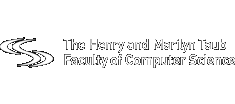science
The academic system across the world is inherently built on trust. Think carefully: What prevents a professor from spending the rest of his days lying on the beach drinking beer the day after receiving the coveted tenure? What guarantees that a PI will not abuse her Ph.D. students forcing them to perform uncreative routine tasks? How can one be sure that the findings published in a scientific paper are real and not fudged to receive a promotion, tenure, awards, and other career advancements? The key ingredient that makes the system work is trust.
Academia is unique in its ability to unite people across a variety of cultures, languages, religions or lack thereof, political views, and personal tastes and preferences. It is especially precious in our era of tiding nationalism and sectorial radicalization. It is a relatively small and closed ecosystem in which the effect of each action is almost directly and immediately evident. Try to abuse your students a few times — the voice will spread and nobody will come to work with you anymore. Dare cheat in your papers and you will lose your credibility forever. Trust is a foundational axiom of the academic system — abroad and at home.
... continue readingA thesis defense
One-act comedy
(The Soviet physicist V. F. Turchin wrote the original play in the ‘60s. I’m offering here my version very freely translated from Russian and adapted to the modern Western reality.)
On stage — a big seminar room at the NRILB — National Research Institute of Logs and Branches. On the front stage — a massive wooden table located on the right; on the left — a podium with a bottle of water and a glass. In the background — a wide thoroughly cleaned whiteboard and a projection screen; some posters are attached to the walls on both sides. Seated at the table are the Chairman of the Examination Committee, the Candidate’s Ph.D. Advisor, and two official Examiners. Other characters are seated in the first row with the audience. During the play, they come on stage and then return to their seats. In this way, the spectator feels present in a real seminar room where the defense is taking place.
(The Chairman is a researcher in the NRILB — a renowned scientist with strong national and international visibility. He is an aged man, tall and with wide shoulders. He belongs to the category of people whose years-long awareness of their own authority and power has become visibly imprinted on their facial traits.)
CHAIRMAN: (rising) Ladies and gentlemen, welcome to this defense of the dissertation named “The effect of branches on the rolling of wooden logs on inclined surfaces” by Mr. Smart in fulfillment of the requirements for the degree of Doctor of Philosophy in Wood Sciences. I invite the Secretary of Graduate Studies to read excerpts from the Candidate’s record. Mr. Neuter, please.
... continue readingIn their own image
— So, what is the latest hot research topic?
— Everyone is now talking about “Small Data”. Haven’t you ever heard of it?
— No. You know that my interests are very distant. I don’t have enough resources to follow all the trendy research.
— It might be over-rated, but still considerable resources are allocated to Small Data.
— So what is it about?
— Well, as the name suggests, it is about small data. More precisely, how to make use of it. We’ve always been able to process practically unlimited amounts of data. Consequently, our natural perception of reality is through probability distributions. This is, at least, how our evolutionary algorithms evolved us. It took us over 50 petacycles of the Clock to develop the notion of a “number” — a deterministic quantity rather than a distribution. Even today, when the formalism of numbers is relatively well-established, arithmetic is still a very new branch of mathematics. We still struggle with understanding it intuitively.
... continue readingHis Master's voice
During the relatively brief Californian chapter of my twenties, I happened to visit a little contemporary art museum in San Francisco the name of which I have no desire to google. I found the majority of the exhibits rather uninteresting and unintelligible (admittedly, my capacity to understand art ends somewhere around the 1960’s). But then, already on my way out, my eyes stumbled upon a very well lit object, the size of a table, made entirely of machined aluminum. God’s Breath Hovering Over the Waters (His Master’s Voice) said the title specifying other uninteresting details such as the artist’s name, year of creation, the materials employed, etc. That sculpture (I don’t know even if it is correct to apply this term to the shiny object) struck me like a lightning bolt and even today, ages hence, it often comes to my mind when I contemplate things eternal.
... continue reading




